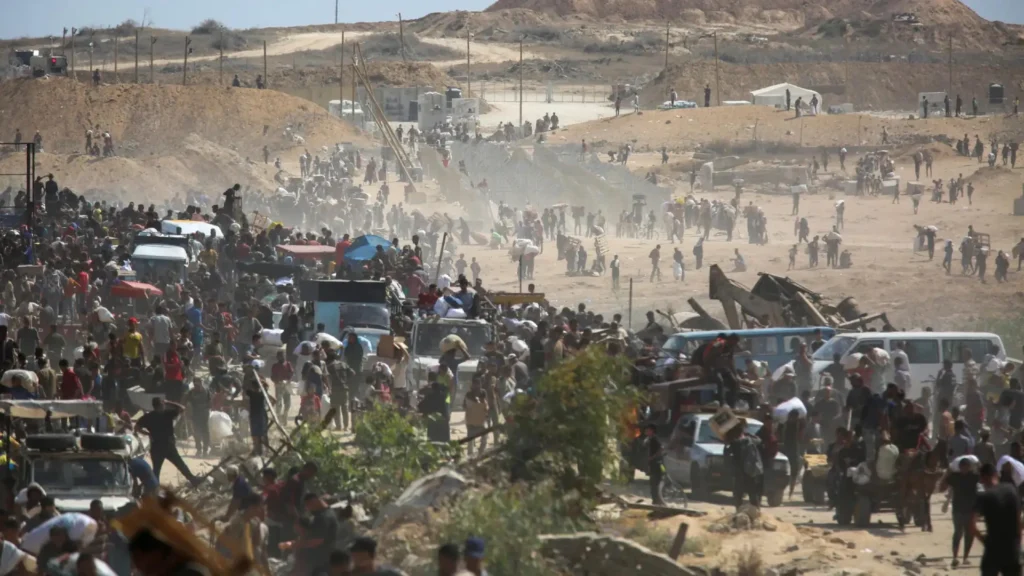In a rare overture, Hamas announced on Sunday that it is prepared to coordinate with the Red Cross to deliver humanitarian aid to Israeli hostages held in Gaza — but only if Israel agrees to halt its airstrikes and permanently open humanitarian corridors into the war-torn enclave.
What Happened
The statement came a day after Hamas released disturbing footage of hostage Evyatar David, who appeared severely emaciated and was seen digging what he claimed was his own grave. The video provoked outrage across Israel and condemnation from Western powers including France, Germany, the UK, and the U.S.
Israel estimates that 50 hostages remain in Gaza, of which only 20 are believed to be alive. Humanitarian groups have had no access to the captives, and families remain largely in the dark about their conditions.
In response to the footage, Israeli Prime Minister Benjamin Netanyahu appealed to the International Committee of the Red Cross (ICRC) to urgently provide assistance to hostages.
Impact and Reactions
The Hostages Families Forum, representing the captives’ relatives, condemned Hamas’ attempt to reframe the narrative. “Every hostage who dies will be on Hamas’s hands,” the group said, calling the humanitarian gesture “a distraction” from the group’s long-standing violation of human rights.
Meanwhile, Gaza’s Health Ministry reported that six more people died of starvation or malnutrition over the past 24 hours, bringing the famine-related death toll to 175, including 93 children. The enclave continues to face a severe humanitarian crisis following nearly two years of war.
Humanitarian Aid and Ongoing Violence
Israel allowed fuel deliveries into Gaza on Sunday, including four U.N. tankers and two Egyptian trucks carrying 107 tons of diesel — although the latter’s entry had yet to be confirmed. COGAT, the Israeli agency overseeing aid coordination, said fuel would support hospitals, bakeries, and public kitchens.
Despite the aid, 80 Palestinians were killed across Gaza on Sunday alone, according to Palestinian health officials. Victims included civilians trying to reach aid centers, and even a staff member of the Palestinian Red Crescent Society, whose office was hit by an Israeli strike.
International pressure continues to build. France and Belgium have initiated airdrops of humanitarian aid into Gaza. But U.N. agencies stress that airdrops are insufficient, and that only a massive increase in land-based aid can prevent further starvation.
While COGAT claims that over 23,000 tons of aid were delivered via 1,200 trucks in the past week, hundreds of those trucks remain idle, as international organizations struggle to safely distribute supplies amid looting and lawlessness.
Broader Conflict and Casualties
The war began on October 7, 2023, when Hamas militants killed over 1,200 Israelis and kidnapped 251 in a surprise attack. Since then, Israel’s military response has resulted in the deaths of over 60,000 Palestinians, according to local health authorities.
Efforts to revive ceasefire talks and secure hostage releases have repeatedly stalled. Hamas says Israel’s military pressure undermines such negotiations, while Israel insists it won’t stop its campaign until all hostages are freed.
What’s NextA U.N. Security Council session is scheduled for Tuesday to address the growing concerns over hostages and the humanitarian disaster unfolding in Gaza. Analysts expect international pressure on both parties to increase, but with military operations ongoing, any breakthrough remains uncertain.
